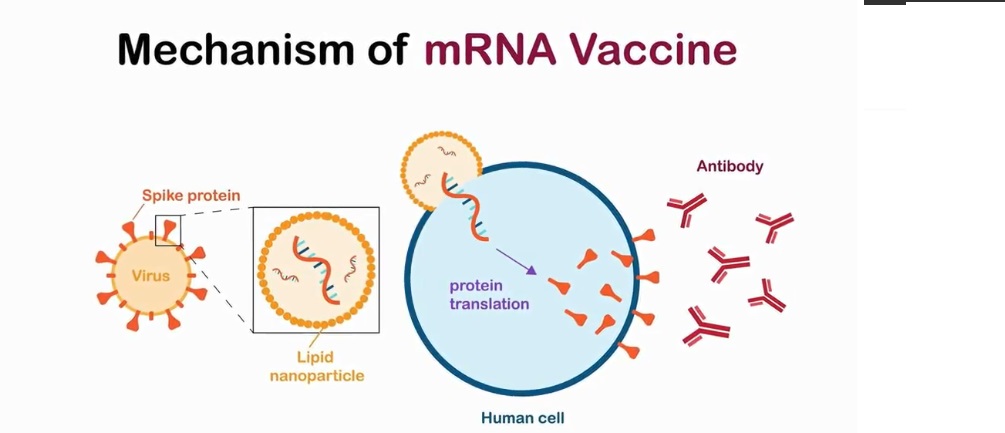While the Covid-19 pandemic devastated the world, it also taught many things, chief among them: the use of vaccines. The messenger RNA (mRNA) vaccine proved immensely fruitful during the pandemic.
mRNA is the molecule that carries information for making proteins. The mRNA vaccine proved to be powerful in Covid-19 caused due to SARS-CoV-2.
The stunning result of the mRNA vaccine excited the researchers because they have been testing it for almost a decade for an entirely different purpose—treating cancer.
An article published on National Cancer Institute reads:
“In fact, scientists at both Pfizer-BioNTech and Moderna drew on their experience developing mRNA cancer vaccines to create their coronavirus vaccines. Now, some investigators believe the success of the mRNA COVID-19 vaccines could help accelerate clinical research on mRNA vaccines to treat cancer.”
Patrick Ott, M.D., Ph.D., director of Center for Personal Cancer Vaccines at the Dana-Farber Cancer Institute said, “There’s a lot of enthusiasm around mRNA right now. The funding and resources that are flowing into mRNA vaccine research will help the cancer vaccine field.”
mRNA vaccines have now become a part of dozens of clinical trials for patients with different types of cancer. Cancers such as colorectal, pancreatic, and melanoma are being treated using the mRNA vaccine in the clinical trial stages.
Engineers have been working for the last three decades in engineering stable forms of mRNA. The National Cancer Institute article mentions:
“Over the past 30 years, researchers have learned how to engineer stable forms of mRNA and deliver these molecules to the body through vaccines. Once in the body, the mRNA instructs cells that take up the vaccine to produce proteins that may stimulate an immune response against these same proteins when they are present in intact viruses or tumor cells.”
“Among the cells likely to take up mRNA from a vaccine are dendritic cells, which are the sentinels of the immune system. After taking up and translating the mRNA, dendritic cells present the resulting proteins, or antigens, to immune cells such as T cells, starting the immune response,” the article further reads.
In the next episode, we will explore a new kind of drug that looks promising in the treatment of cancer.
How did you find this information? Please mention this in the comments section. We would also like to know the kind of content you want to watch, and we will try to create it for you. For more news and updates, follow Airr News.
#Cancer #CancerResearch #mRNAVaccine #Covid19 #CovidPandemic #Melanoma #Pancreatic #ColorectalCancer #CancerVaccine #ClinicalTrials #SurvivingCancer #CancerWarriors #Tumors #AirrNews #NewsInEnglish

